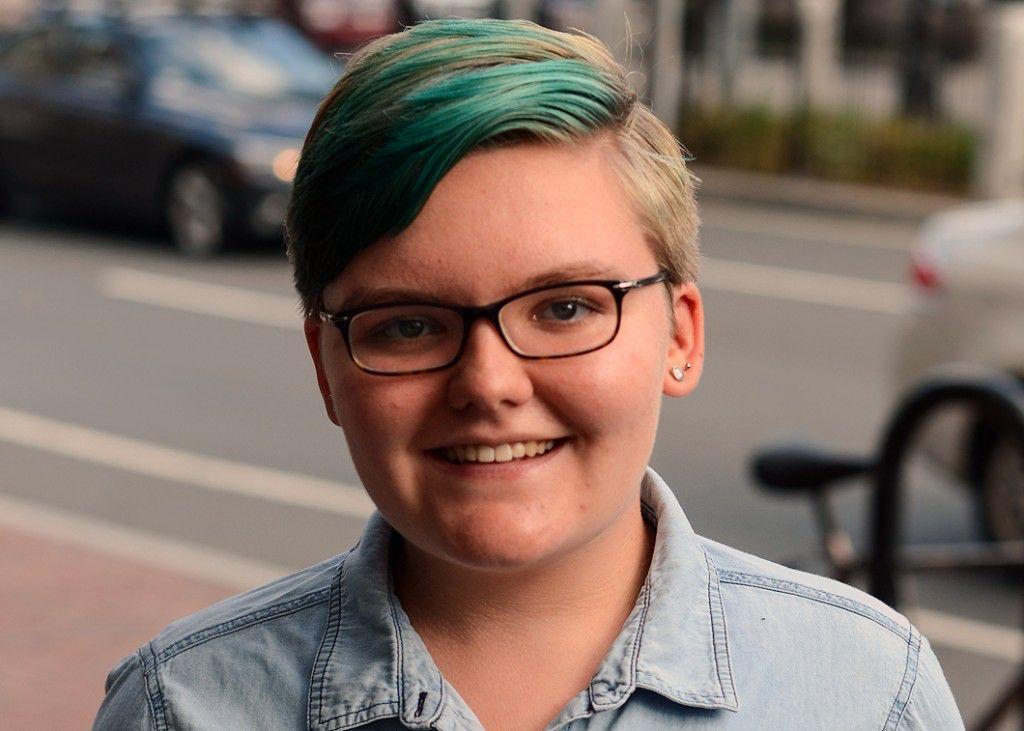Many people have a hard time wrapping their head around the concept of bisexuality. I don’t understand why it’s so astonishing and impossible that people could like and be sexually attracted to more than one gender, but it is.
Sometimes people get stuck in binary thinking. Everything must be either this or that: big or small, good or bad, up or down. It’s how we were taught when we were first learning to interact with the world, way back in elementary school, and it can be hard to break. But like the little girl in the Old El Paso commercial said, “Why don’t we have both?”
If you can like both brunettes and blondes, then bisexuals can like both men and women. Gender is just another characteristic like hair color or eye color. It just simply doesn’t matter to some people. And just because you like both, doesn’t mean you can’t have a preference. People experience bisexuality in a variety of ways, and it often isn’t a 50-50 split between attractions to both genders.
The “B” in LGBT is often overlooked because people assume that bisexuality doesn’t exist and is really just a stepping-stone to come out as gay. While some people do use it as a stepping stone — or maybe they are just trying to figure themselves out? I mean, when you are socialized to be heterosexual, it can be a confusing journey to figure out what your true orientation is — it is still a legitimate identity. Also, some people experience sexual orientation as a fluid concept that changes over time, so it’s possible that at one point, they identified as bi but later identified as gay.
This overlooking of bisexuals is called bi-erasure. It happens all the time in the media. For example, even in a show that is all about challenging the binaries, “Orange is The New Black,” the protagonist Piper Chapman has sexual feelings for both males and females. Yet never does she or anyone else in the show, come to the conclusion that she is bisexual.
When the media systematically erases bisexuals, it helps perpetuate stereotypes and lies about bisexuality and allows bi-phobia to persist. It alienates bisexuals from feeling like they belong to either group, straight or LGBT.
What about the other labels besides bisexual, like queer or pansexual? You might be wondering what the difference is between them all. To be perfectly honest, the answer varies and is quite personal. People choose to use the labels they are most comfortable with and that they most identify with. Unfortunately, bisexual is a label that is more heavily stigmatized than others.
People who aren’t bisexual, both in the straight community and the LGBT community, seem to have a lot of mistaken notions about people who are. This leads to bi-phobic behavior, where people unfairly judge bisexuals for their sexual orientation. Bisexuals are then left feeling like they don’t belong in either the straight or LGBT community.
People seem to think just because someone is attracted to more than one gender, they are going to cheat or be unsatisfied in a long-term monogamous relationship. This just isn’t true. Going back to the hair color analogy from before, if you are dating a blonde but also like brunettes, will you cheat or feel dissatisfied by not dating a brunette? Probably not.
Yes, there are some bisexuals who cheat. There are also straight people who cheat and gay people who cheat. Whether or not you cheat is a reflection of the quality of your character and not your sexual orientation.
Another problem faced by those who identify as bi, is bi-invisibility. If you are in a relationship with the same or opposite sex, the world will only see you through one lens (straight or gay) leaving the bisexual identity invisible. Whether you are in a same-sex or opposite-sex relationship, your sexual orientation identity is a big part of who you are and how you see the world. So ignoring such a crucial part of someone is damaging and means bisexuality is a constant coming out process.
Bisexuality acceptance and stigma varies between males and females. It is more acceptable to be a bisexual woman because it fulfills male fantasies and doesn’t really threaten a woman’s femininity. However because it fulfills male fantasies, you are way more likely to be objectified and disrespected. Bisexuality in males threatens the ideas of masculinity, and so it is often dismissed and assumed that they are gay.
All of these stigmas and negative assumptions about bisexuality do have an influence on the bisexual community. Bisexuals experience worse rates of mental health than their monosexual counterparts. It is crucial that we do not forget, diminish or ignore the experiences of bisexual people when fighting for equality among marginalized identities and remember to combat the bi-phobia and bi-erasure we encounter in our daily lives.





















































































































Cheryl • Feb 4, 2015 at 10:17 am
Hello. I wonder if I can translate this article and share with Chinese people?